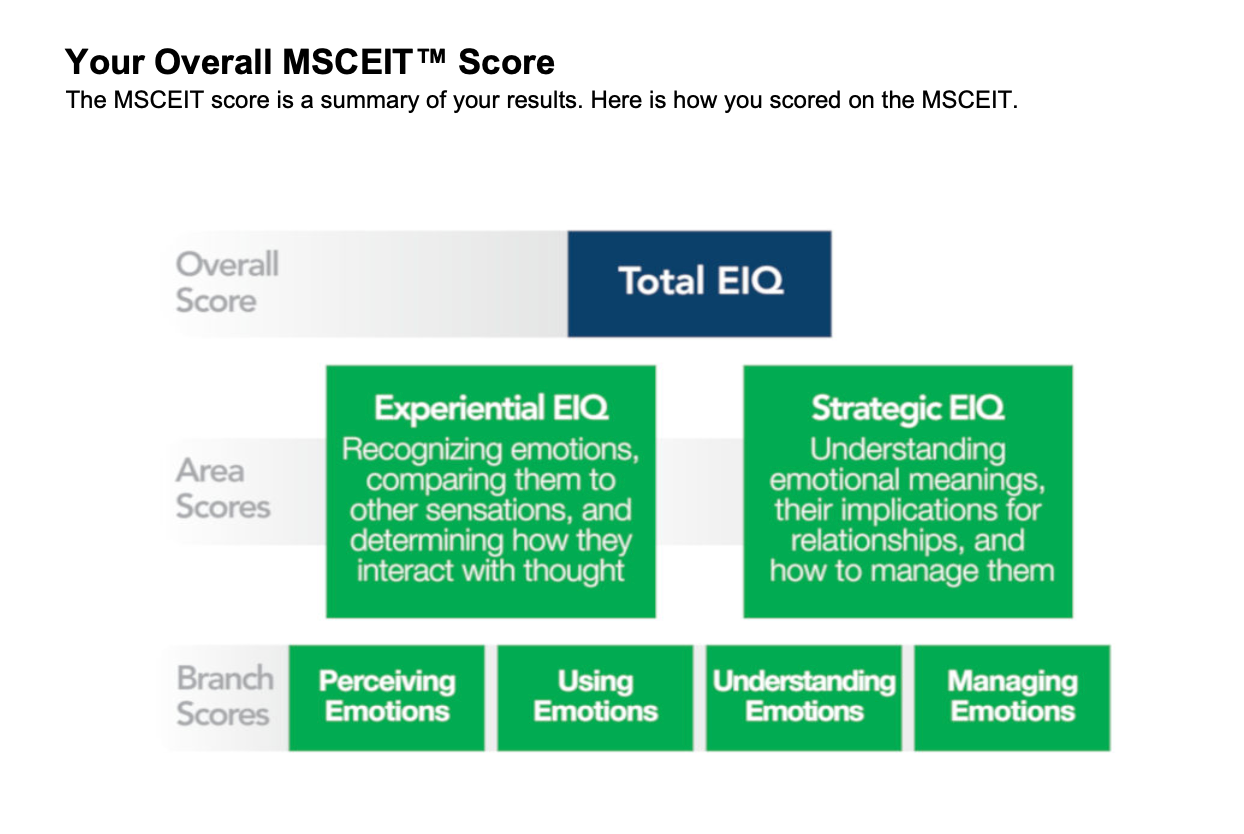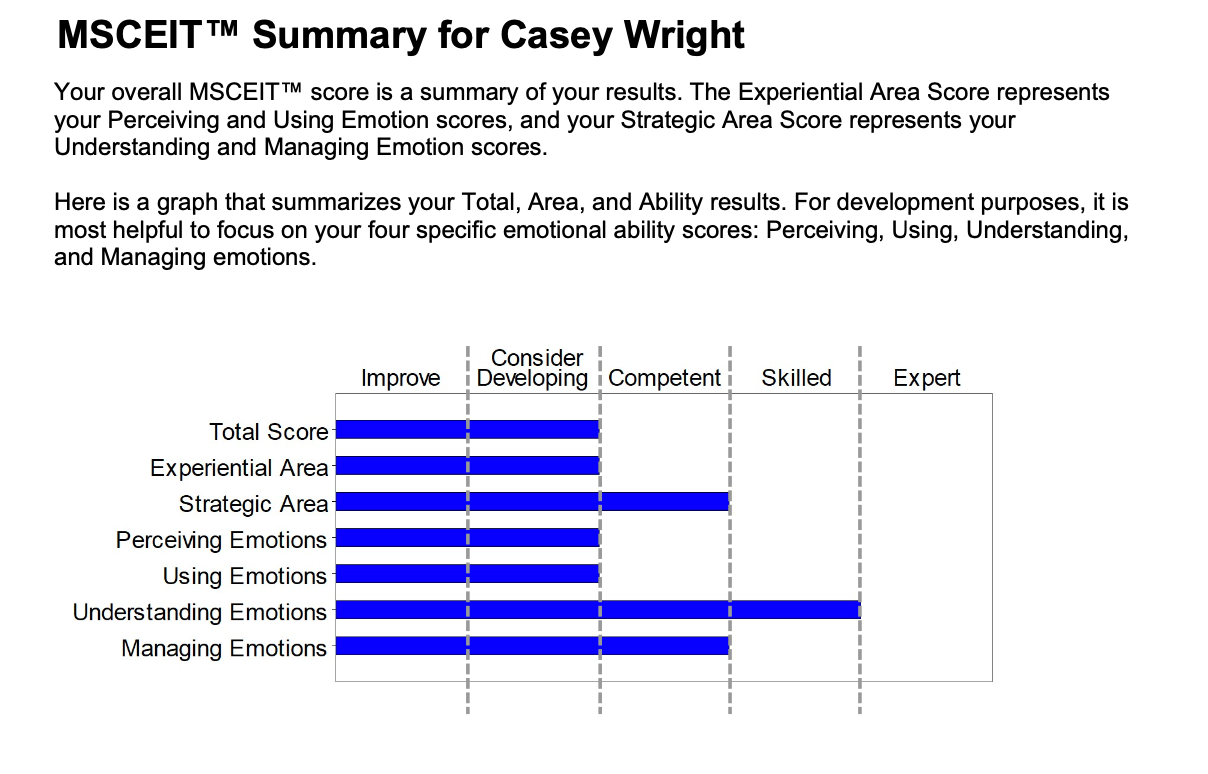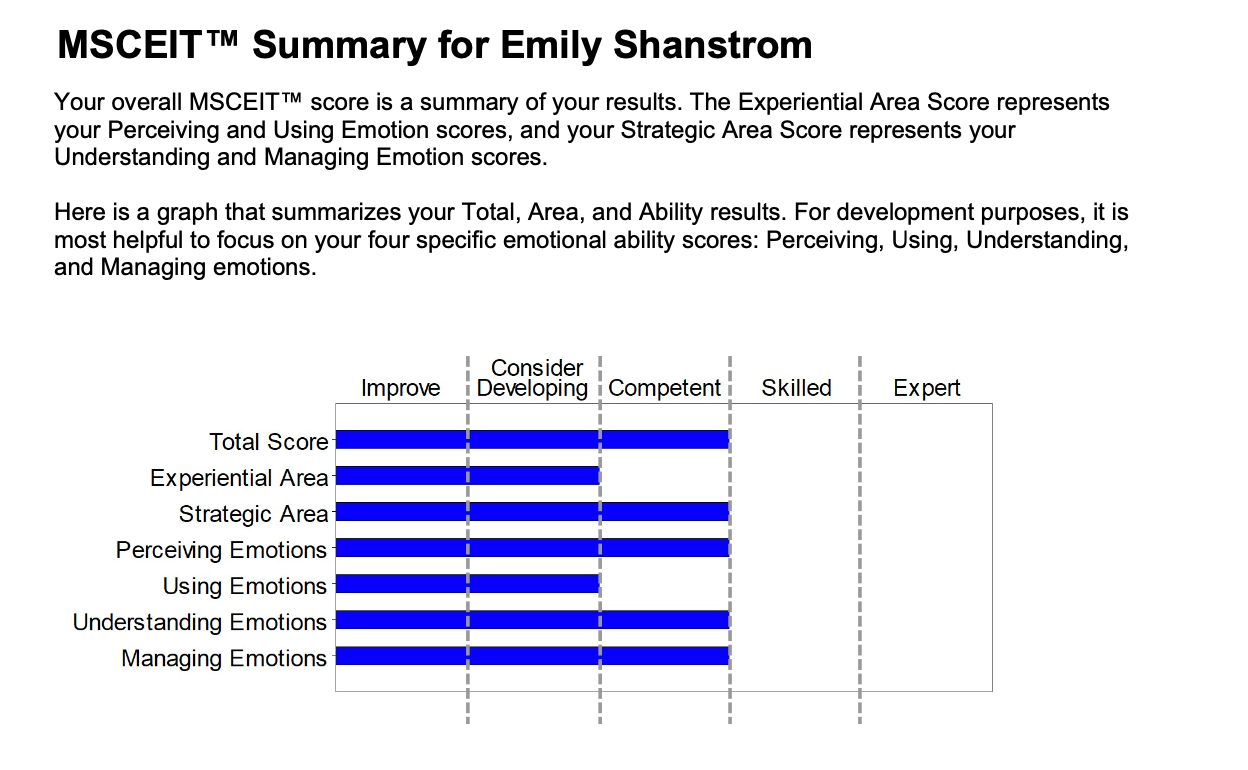
Testing Your Emotional Intelligence w/ Emily Shanstrom
In this week's episode, I welcome my first guest (my fiancé Emily).
To prepare for this week's episode, Emily and I both took the Mayer-Salovey-Caruso Emotional Intelligence Test (MSCEIT), an advanced research-backed test for determining your emotional intelligence.
Join us as we explain how the MSCEIT works, reveal our results (spoiler alert: they're not great), and show you how you can take the test yourself.

Emotional Intelligence & The MSCEIT
Emotional Intelligence (EI) is a term popularized in the 1990s by psychologist and author Daniel Goleman. It refers to the ability to recognize, understand, and manage our own emotions, as well as to recognize, understand, and influence the emotions of others.
In the realm of EI assessment, the Mayer-Salovey-Caruso Emotional Intelligence Test (MSCEIT) stands out. Developed by psychologists John D. Mayer, Peter Salovey, and David R. Caruso, the MSCEIT is grounded in their pioneering theory of emotional intelligence. Unlike traditional IQ tests, the MSCEIT measures emotional intelligence – the capacity to reason with, and about, emotions. This test evaluates how well individuals perceive, use, understand, and manage emotions.
How Does the MSCEIT Work?
The MSCEIT is structured around four key cognitive capacities:
- Perceiving Emotions: The ability to accurately recognize and interpret emotions in oneself and others, as well as in objects, art, and stories.
- Using Emotions: The aptitude to harness emotions to facilitate various cognitive activities, like thinking and problem-solving.
- Understanding Emotions: The skill to comprehend complex emotions and how they evolve over time.
- Managing Emotions: The competence in managing emotions in oneself and others to promote emotional and intellectual growth.
Participants complete a series of tasks designed to measure these competencies. For instance, they might analyze facial expressions to assess emotion perception or solve emotional dilemmas to demonstrate their emotion management skills.



Why Is the MSCEIT More Effective than Other Emotional Intelligence Tests?
- Performance-Based Approach: Unlike self-report measures, which rely on an individual's subjective assessment of their own EI, the MSCEIT is a performance-based test. It assesses actual abilities rather than self-perceptions, which can be biased or inaccurate.
- Objective Scoring: The MSCEIT provides more objective results. Answers are scored based on consensus from large samples or according to expert ratings. This minimizes subjective interpretations and enhances the reliability of the assessment.
- Comprehensive Framework: The test covers a wide range of emotional abilities, from basic emotional recognition to the complex management of emotions. This comprehensive approach provides a nuanced picture of an individual’s EI.
Take the MSCEIT
You can take the MSCEIT through Psysoft. It's not cheap, and it's a bit of a process, but Emily and I both agreed that it was time and money well spent.
Follow these steps to take the MSCEIT:
- Contact Psysoft through their website's contact form
- In your message, explain that you'd like to take the MSCEIT
- Psysoft will send you an invoice that is payable online ($110 per test)
- Once the invoice is paid, they will send you a link to take the exam online
- Once you complete the exam, they will score it and return your results (usually within 24 hours)





